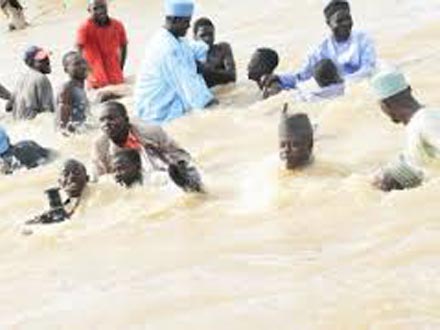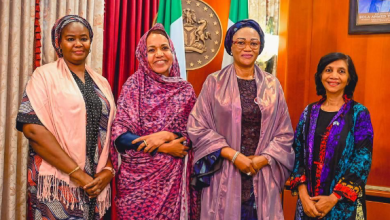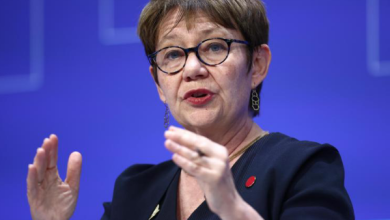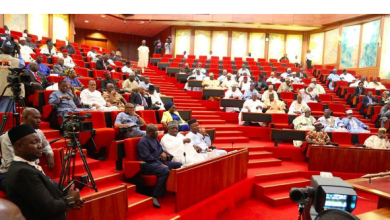Floods: Nigeria constitutes committee to re-assess dams nationwide

Following the recent flood disaster in Maiduguri, Borno State and some other parts of the country, the Federal Executive Council (FEC) has constituted a committee to re-assess the 38 year-old Alau Dam and others across the country to prevent reoccurrence.
Minister of Water Resources, Prof. Joseph Utsey, disclosed this and that the Council extensively deliberated on the flood situation across the country with emphasis on Maiduguri flooding,
Sanitation had requested increased allocation from the National Assembly to address the bad component of the Alau Dam.
The FEC, presided over by President Bola Tinubu, mandated the Committee to develop detailed designs and recommendations for the overall reconstruction of the Alau Dam for future use, as the Minister of Finance and Coordinating Minister of the Economy, Wale Edun, also told journalists that the Council has established a Disaster Relief Fund.
According to Utsev, “In 2022, there was a problem with one of the components of the dam. The Minister of Water Resources wrote to the National Assembly for allocation of more funds and the government of Maiduguri for the rehabilitation and reconstruction of the 38 years old dam to further facilitate water supply, purposes of irrigation and flood controls.
“We are now re-assessing the true integrity of the dam to come up with a detailed design for overall reconstruction. We also had a discussion with the management of Lagdo Dam on the release of 100cubic meters of water that can be released within seven days and the Ministry sent a warning to those living along the river valley areas”, he said.
Members of the constituted committee on the review of Alau dam and others were, the Ministers of Finance, Wale Edun, Water Resources and Sanitation, Prof. Utsev, and Agriculture, Food and Security, Abubakar Kyari among others.
The Minister of Finance said the established Disaster Relief Fund would focus on the financing and bringing together funding from the three tiers of the government, the private sectors and the international philanthropic organizations to build a resilient response to climate disaster occurrences across the country.
Acknowledging existing relief funds domiciled with the National Emergency Management Agency (NEMA) and the Flood Relief Funds set up in 2012, the Minister said that the President directed the set-up of the Fund to mitigate the climate challenges.
He said, “We were in agreement with the decision of Mr. President to start today’s FEC meeting with the devastating situation of flooding in Maiduguri in Borno State. At the end of that discussion, which we started the meeting with, the President did direct that a disaster Relief Fund be set up. We know that there is NEMA, and the Flood Relief Fund.
“The President feels that in this era of climate change and events, and that from time to time, no matter the prevention measures there will be disasters that will occur. We need to build greater resilience in a form of a substantial Disaster Relief Fund separate from the agencies that intervene in disasters. This will focus on the financing.
“From the federal, sub National, local level, private sector and even the international organizations. It will be led by top corporate governance, including leadership by the private sector at an appropriate level in order to build for Nigeria, a resilient response that is adequate size, skilled and quality and able to respond to such occurrences as we have had in Borno and elsewhere.
“We know no matter how we pray against it, we know this will happen from time to time so we need to be ready. We also know we do have the NEMA Relief Fund, we even have the Flood Relief Funds set up around 2012, but Mr. President feels we need this in this era of climate change.
“We need to build greater resilience in the form of substantial disaster relief funds, separate from agencies that actually intervened physically. This will focus on the financing and bringing together the funding from across the spectrum of the federal, sub national levels and the local levels and clearly the private sectors and international philanthropic organizations”.
He emphasized the importance of pooling funds from various sectors and being prepared when disasters strike.
Edun equally disclosed that the Council passed the Draft Economic Stabilization Bill, which was largely based on the recommendations of the Fiscal Policy and Tax Reform Committee. This bill, he said, would soon be sent to the National Assembly for passage into law.
The FEC also on Monday directed the Federal Capital Territory (FCT) administration to immediately commence the construction of 40 number quarters at Katampe District to provide accommodation for Judges and Justices in the Territory.
FCT Minister, Nyesom Wike, who disclosed this to newsmen explained that “What it means is that out of these 40, FCT High Court which is like FCT court will have 20, the Federal High Court will have 10 and the Court of Appeal will have 10. And these will be completed in 15 months time”.
He stressed that the decision is predicated on the premium the President Tinubu administration attaches to members of the judiciary.
Minister of Information and National Orientation, Mohammed Idris told newsmen that FEC gave approvals to several changes in the Federal Ministry of Information and National Orientation policies to strengthen the national value system, precisely the institution of national citizens value brigade across basic schools.
He added that the Council noted the gradual eroding of values especially among the younger ones giving rise to all forms of misconduct and acts that are not in tune with Nigeria’s traditions and norms.



